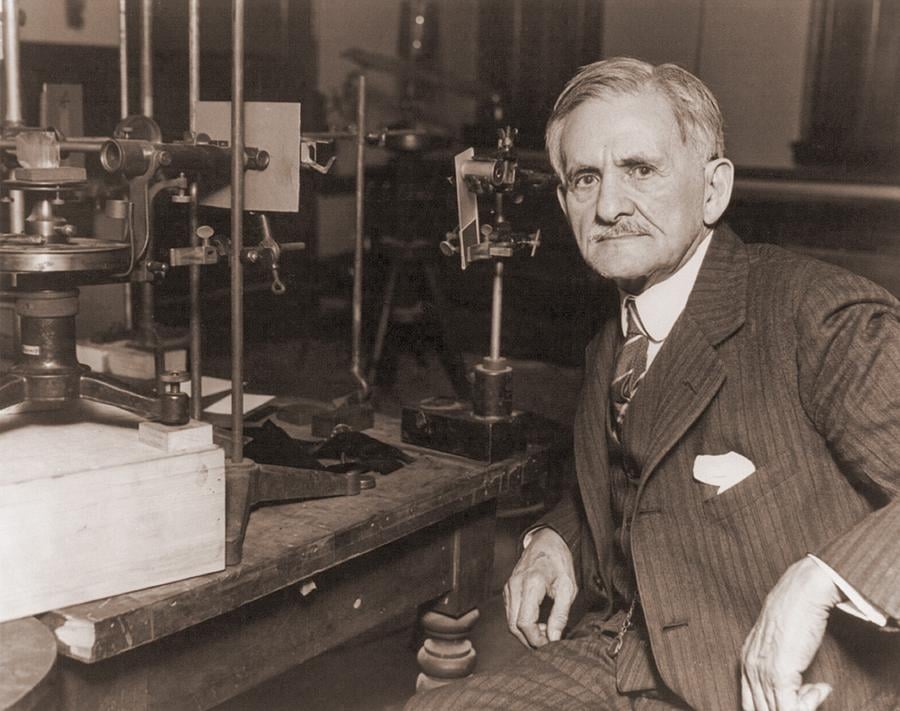
Albert Abraham Michelson (December 19, 1852 - May 9, 1931) was an American physicist known for his work on the measurement of the speed of light and especially for the Michelson-Morley experiment. In 1907 he received the Nobel Prize in Physics. He became the first American to receive the Nobel Prize in sciences. Wikipedia, Michelson
The first Nobel Prize to an "American"
Michelson - his experiments that brought Einstein to relativity!
The artist of science
December 1907, the first American scientist receives the Nobel Prize in Physics. It's Albert Michelson, American physicist of German origin (born in Strzelno, December 19, 1852). The Nobel Prize is awarded for "his precision optical instruments and for the spectroscopic and metrological investigations carried out with their help."
Virtuous of optical technologies, he designed the Michelson high-precision interferometer and used it to measure the speed of light, which was thought to be different depending on the direction in which it is measured - already, the ether!
Indeed, in 1887, together with Edward Morley, Michelson used his interferometer in an experiment that made physics history: to measure (the changes in) the speed of light as the Earth moved through the ether. Surprise! Speed does NOT change, it is constant!
This was one of the results that brought Einstein to the theory of relativity - which, if you think about it properly, was born from an absolute - the speed of light!
The asteroid 27758 Michelson was dedicated to him.
„I always think of Michelson as the artist of science. He seemed to get the maximum joy from the beauty of the experiment itself and the elegance of the method used. ” (Albert Einstein)
See Also
Ether
Ether - Michelson
Light
Michelson-Morley experiment
Michelson-Morley Ether Experiment
